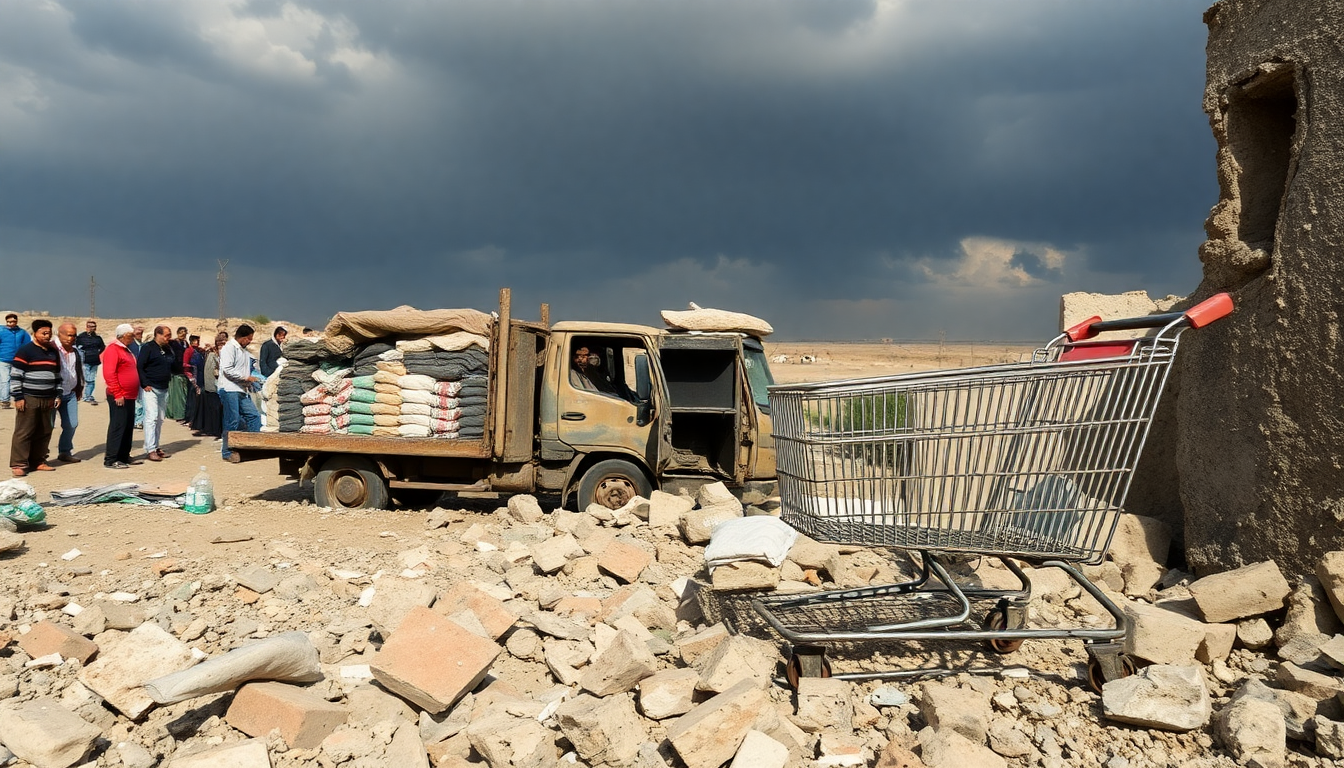Table of Contents
The humanitarian situation in Gaza has spiraled out of control, with relentless military strikes taking a devastating toll on civilians. Recent reports reveal that thousands have tragically lost their lives, while countless others are grappling with famine and a complete breakdown of essential services. This grim reality has sparked urgent calls for international action to address the crisis and provide critical support to those in need.
The Human Cost of Conflict
As the conflict intensifies, the death toll among Palestinians is rising alarmingly. Medical sources indicate that at least 30 individuals were killed in various Israeli attacks recently, pushing the overall count to nearly 56,000 since the conflict began. Among those who lost their lives are desperate aid seekers who, in a bid to feed their families, fell victim to violence at food distribution points. Isn’t it heartbreaking to think that people trying to survive are caught in such a deadly situation?
The Gaza Humanitarian Foundation (GHF), which receives backing from the United States and Israel, has found itself at the center of criticism. There are serious accusations of the “weaponization” of aid against the organization, which operates under conditions many liken to human slaughterhouses. The humanitarian crisis is worsening swiftly, with reports noting over 400 fatalities and around 1,000 injuries since aid distributions began. For those in need, the struggle for survival has become a perilous journey.
The Impact of Energy Blockades
Alarm bells are ringing as the Norwegian Refugee Council (NRC) highlights the dire energy shortages in Gaza. The lack of accessible energy sources poses a monumental threat to the survival of the population. The intentional denial of energy access—be it electricity or fuel—is crippling basic human needs, resulting in a scenario where hospitals are unable to function, water cannot be pumped, and families are left unable to prepare food. Can you imagine living in such conditions?
Benedicte Giaever, executive director of NORCAP (part of the NRC), put it bluntly: “In Gaza, energy is not about convenience – it’s about survival.” The stakes are incredibly high; this energy crisis is not just an inconvenience but a life-threatening situation. Healthcare facilities are struggling to keep their doors open, emergency surgeries are being postponed, and vital medical equipment is rendered useless due to power outages. This only deepens the suffering of a population already standing on the edge of disaster.
Urgent Need for Action
It’s clear that the international community must place energy access and humanitarian aid at the forefront of efforts to tackle the crisis in Gaza. The ongoing blockade has drastically limited the flow of essential supplies—food, medical resources, and fuel. As the situation worsens, coordinated international efforts to provide relief and restore basic services have never been more critical.
In conclusion, the humanitarian crisis in Gaza is a complex issue that demands immediate and sustained attention from the global community. Without urgent intervention, the consequences will be catastrophic, leading to further loss of life and deteriorating living conditions for millions of Palestinians. The time for action is now—will the world step up and help resolve this tragic situation?


